
Arta: The Hidden Gem of Djibouti
Nestled in the heart of Djibouti, Arta is a charming town that offers a unique blend of natural beauty and cultural heritage. Known for its breathtaking landscapes, Arta is a paradise for nature lovers and adventure seekers alike. The town is surrounded by rugged mountains and scenic valleys, making it a perfect spot for hiking and exploring the great outdoors. The climate is mild, providing a pleasant escape from the heat of the coastal regions. Arta is also rich in history and local traditions. The town is home to several historical sites and cultural landmarks that reflect its diverse heritage. Visitors can explore the old market, where they will find a variety of local crafts and traditional goods. The local cuisine is another highlight, offering a delicious array of flavors that are sure to tantalize your taste buds. Be sure to try some of the traditional dishes, which are made from fresh, locally sourced ingredients. One of the most unique features of Arta is its warm and welcoming community. The locals are known for their hospitality and are always eager to share their culture and traditions with visitors. Whether you're exploring the town's natural wonders or immersing yourself in its rich cultural heritage, Arta promises an unforgettable experience that will leave you with lasting memories.
Local tips in Arta
- Visit during the cooler months (November to February) for the most pleasant weather.
- Bring comfortable hiking shoes for exploring the rugged landscapes and scenic trails.
- Try the local cuisine at the town's markets and restaurants for an authentic taste of Arta.
- Learn some basic French phrases; it's widely spoken and will help you communicate with the locals.
- Don't miss the historical sites and cultural landmarks to get a deeper understanding of Arta's heritage.
Arta: The Hidden Gem of Djibouti
Nestled in the heart of Djibouti, Arta is a charming town that offers a unique blend of natural beauty and cultural heritage. Known for its breathtaking landscapes, Arta is a paradise for nature lovers and adventure seekers alike. The town is surrounded by rugged mountains and scenic valleys, making it a perfect spot for hiking and exploring the great outdoors. The climate is mild, providing a pleasant escape from the heat of the coastal regions. Arta is also rich in history and local traditions. The town is home to several historical sites and cultural landmarks that reflect its diverse heritage. Visitors can explore the old market, where they will find a variety of local crafts and traditional goods. The local cuisine is another highlight, offering a delicious array of flavors that are sure to tantalize your taste buds. Be sure to try some of the traditional dishes, which are made from fresh, locally sourced ingredients. One of the most unique features of Arta is its warm and welcoming community. The locals are known for their hospitality and are always eager to share their culture and traditions with visitors. Whether you're exploring the town's natural wonders or immersing yourself in its rich cultural heritage, Arta promises an unforgettable experience that will leave you with lasting memories.
When is the best time to go to Arta?
Iconic landmarks you can’t miss
Mosquée Al-Hamoudi
Discover Djibouti City's iconic Al-Hamoudi Mosque, a historic landmark blending Islamic architecture and cultural significance in the heart of the capital.
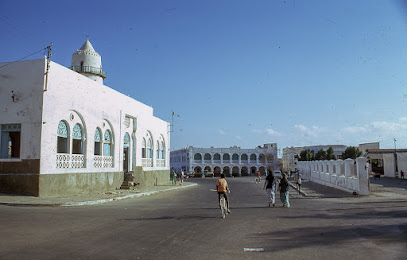
The People's Palace
A symbol of Djibouti's struggle for freedom, The People's Palace stands as a reminder of the nation's resilience and aspirations for a brighter future.
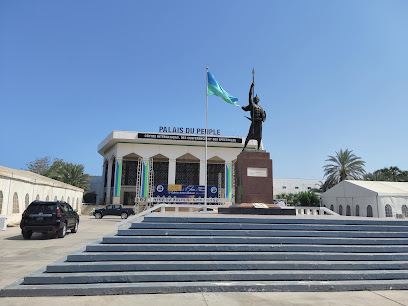
Day Forest National Park
Discover Djibouti's hidden gem: Day Forest National Park, a lush mountain oasis teeming with unique wildlife, scenic trails, and a refreshing escape from the arid desert landscapes.
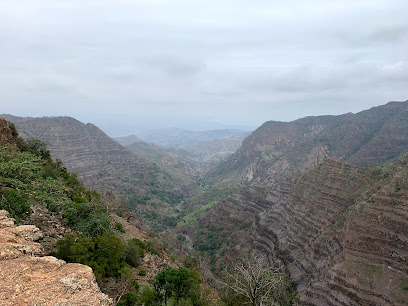
DECAN Refuge
Discover Djibouti's wildlife at DECAN Refuge: a sanctuary for rescued animals, offering a tranquil escape and a chance to support conservation efforts just outside Djibouti City.
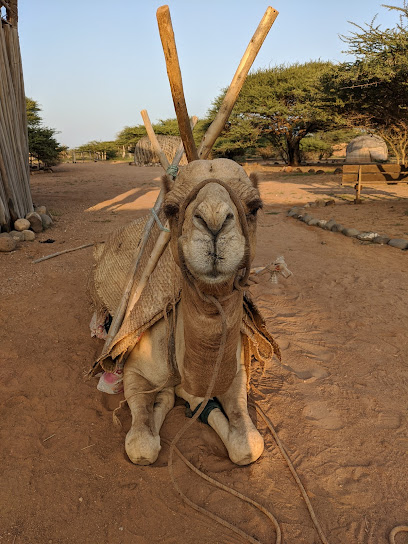
Al Sada Mosque
Discover Al Sada Mosque in Djibouti City: a historical landmark showcasing Islamic architecture and cultural heritage in the vibrant capital.
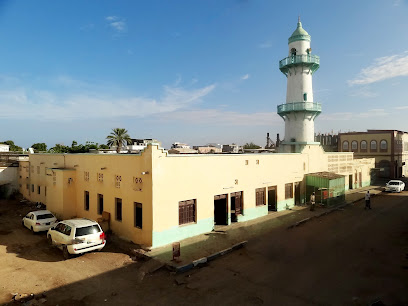
Parking Place Menelik
Discover Djibouti's vibrant heart: park at Menelik and explore markets, culture, and cuisine with ease!
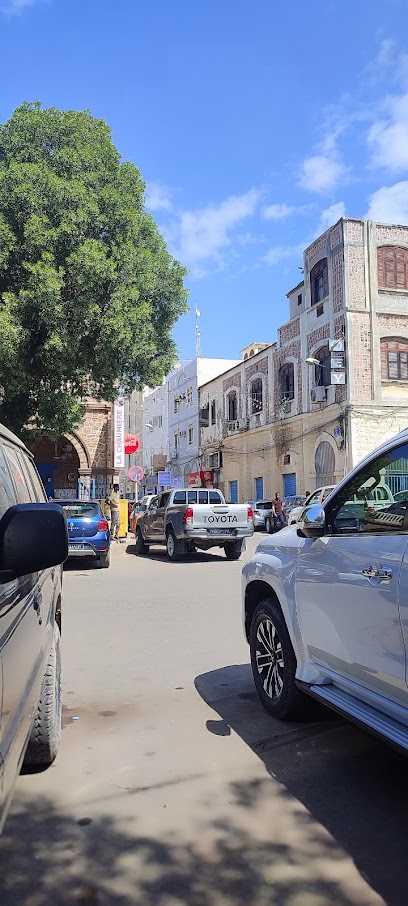
Arta Beach
Discover Arta Beach, Djibouti: a serene coastal paradise with golden sands, turquoise waters, vibrant coral reefs, and the chance to swim with whale sharks, offering an unforgettable escape.
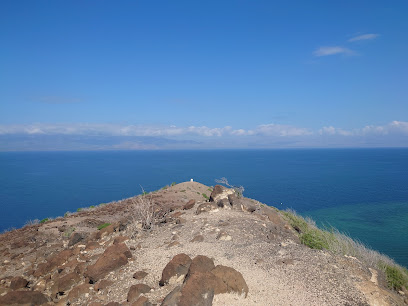
St. Gabriel Ethiopian Orthodox Church, Djibouti
Discover St. Gabriel Ethiopian Orthodox Church in Djibouti, a vibrant center of faith, culture, and Ethiopian heritage.
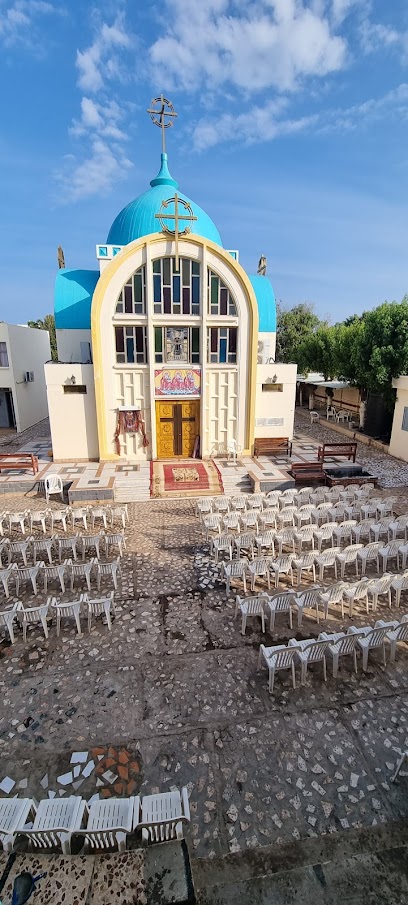
Ali Sabieh Mountain
Discover Ali Sabieh Mountain, a symbol of Djibouti's national pride offering scenic views and a glimpse into the nation's history and natural beauty.
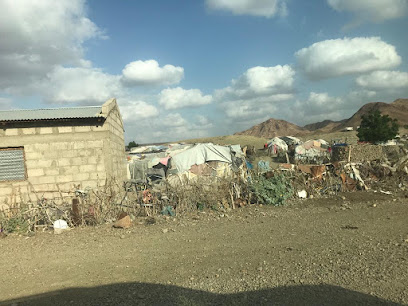
Place mahmoud harbi
Experience Djibouti's vibrant culture at this coffee shop on Place Mahmoud Harbi, a bustling hub of commerce and community in the city's heart.

Asa Koma
Explore Asa Koma, an archaeological gem in Dikhil, Djibouti, rich in Neolithic history and surrounded by breathtaking landscapes, offering a unique glimpse into early human settlements.
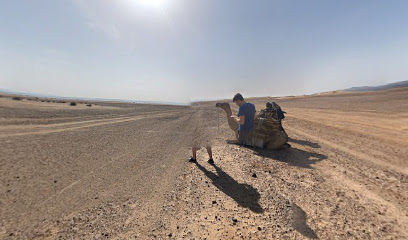
Unmissable attractions to see
Mosquée Al-Hamoudi
Discover the architectural splendor and serene ambiance of Mosquée Al-Hamoudi, a must-visit cultural landmark in Djibouti.
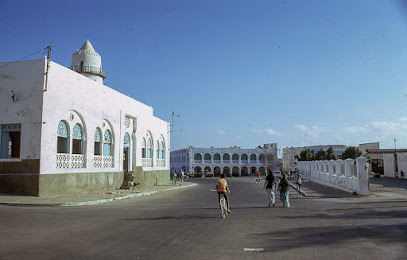
DECAN Refuge
Explore DECAN Refuge in Djibouti: A unique wildlife sanctuary blending conservation with breathtaking natural beauty, ideal for nature lovers and tourists.
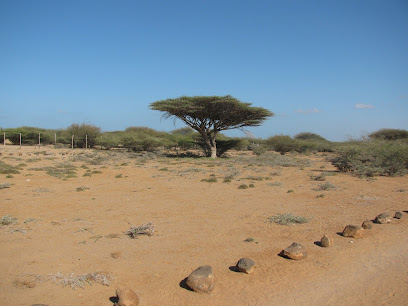
The memorial of two Japanese, Arta, Djibouti
Explore the serene Memorial of Two Japanese in Djibouti, a tranquil park dedicated to honoring cultural heritage and historical connections in a stunning landscape.
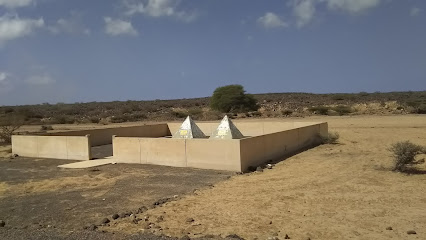
Essential places to dine
Pizzaiolo Haramous
Experience authentic Italian cuisine at Pizzaiolo Haramous in Djibouti - home of delicious pizzas and warm hospitality.
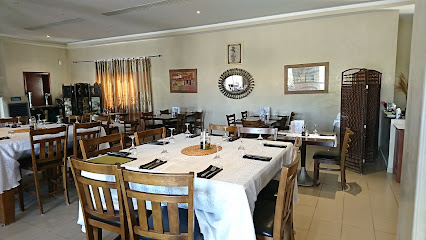
Signatures Restaurant Djibouti
Discover the authentic taste of India at Signatures Restaurant Djibouti - where culinary excellence meets warm hospitality.
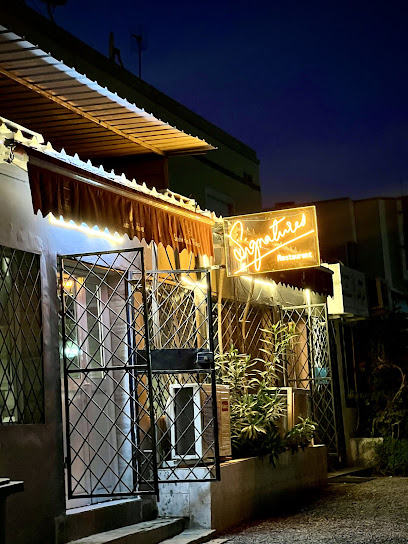
Moonlight Restaurant
Experience authentic Djiboutian cuisine at Moonlight Restaurant, where every dish tells a story amidst a vibrant atmosphere.
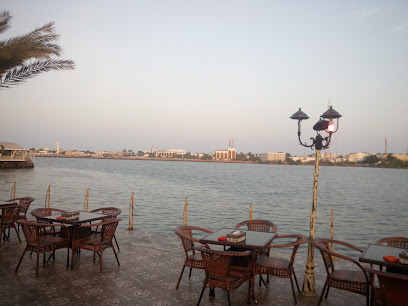
Café de la Gare
Experience authentic French cuisine at Café de la Gare in Djibouti, where delicious flavors meet cozy ambiance.
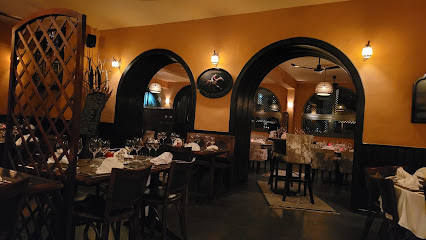
Restaurant La Mer Rouge
Discover the vibrant flavors of seafood and international cuisine at Restaurant La Mer Rouge in Djibouti.
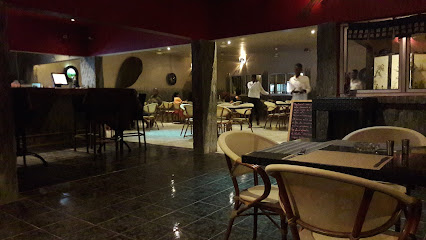
La Pergola
Experience authentic West African cuisine at La Pergola in Djibouti - where every dish tells a story.
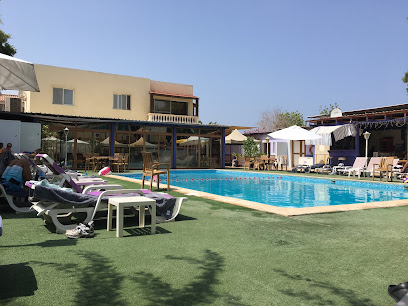
Janateyn Yemeni restaurant
Experience the authentic taste of Yemen at Janateyn Yemeni Restaurant in Djibouti—where rich flavors meet warm hospitality.
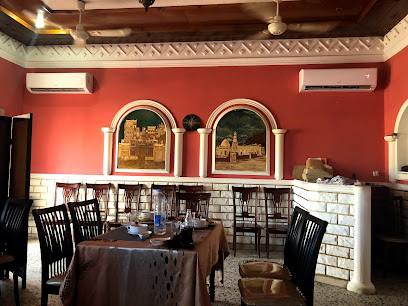
Saba Restaurant
Experience authentic Yemenite cuisine at Saba Restaurant in Djibouti – where every dish tells a story.
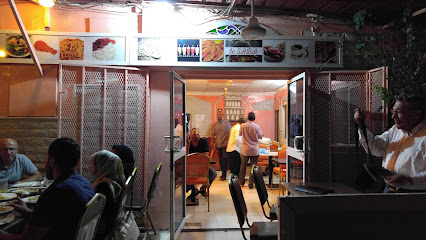
Le Santal
Experience the rich flavors of India at Le Santal in Djibouti - where every meal tells a story.
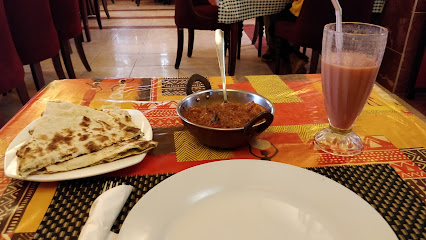
Jules Verne
Discover exquisite dining at Jules Verne in Djibouti, where local flavors meet international cuisine in a stunning atmosphere.
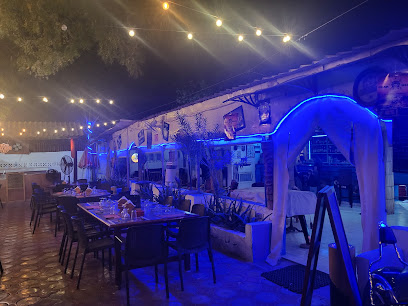
Lac Assal Restaurant
Discover exquisite flavors and breathtaking views at Lac Assal Restaurant in Djibouti - a culinary experience not to be missed.
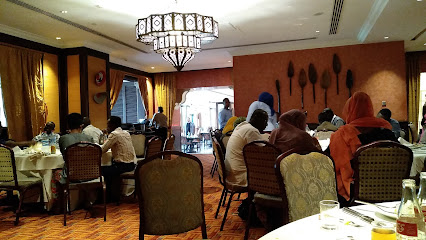
Tentazioni
Experience authentic Italian cuisine at Tentazioni in Djibouti - where every dish tells a story of tradition and flavor.
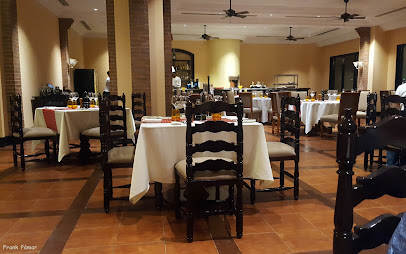
Restaurant La Terrasse مطعم تراس بن ماضي
Discover authentic Ethiopian cuisine at Restaurant La Terrasse in Djibouti - where tradition meets flavor in every dish.
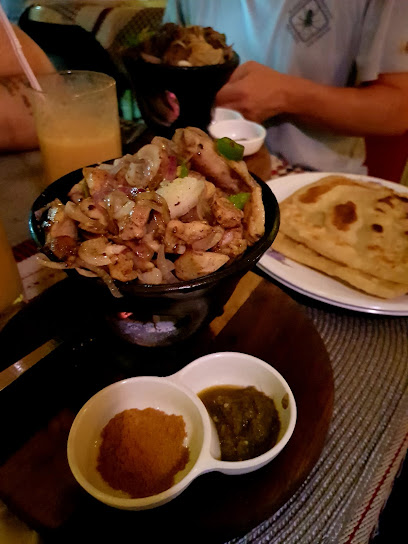
Timeout Restaurant and Sport Bar
Experience the flavors of Djibouti at Timeout Restaurant and Sport Bar—where delicious food meets vibrant entertainment.
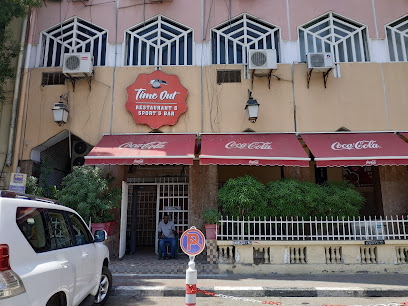
Restaurant Bafena
Experience authentic East African flavors at Restaurant Bafena in Djibouti—where every dish tells a story.
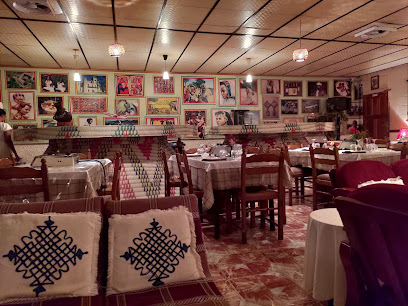
Markets, malls and hidden boutiques
Arta electronique
Explore the best of electronics at Arta Electronique in Djibouti, your one-stop shop for cutting-edge gadgets and tech solutions.

Magasin Chez Farah
Explore the vibrant local culture through unique gifts and crafts at Magasin Chez Farah, the heart of Djibouti's artisanal treasures.
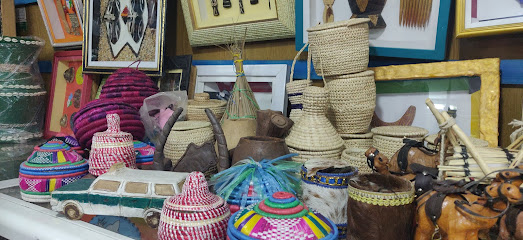
Bait Shops
Discover the ultimate bait shop in Djibouti for fishing enthusiasts, offering a wide range of baits and gear for your next angling adventure.
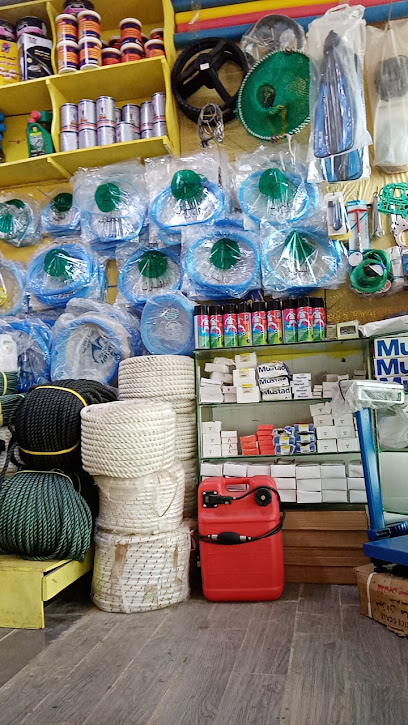
patisserie arta
Experience the authentic flavors of Djibouti at Patisserie Arta, a charming grocery store offering local delicacies and fresh produce.
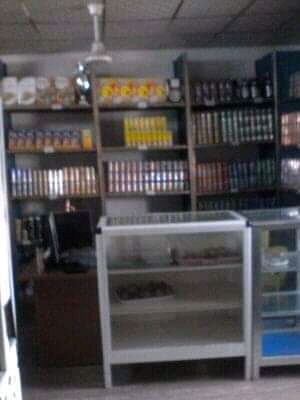
Ali Baba Treasures
Explore Ali Baba Treasures in Djibouti: Your destination for unique gifts and local artistry that captures the essence of the region.
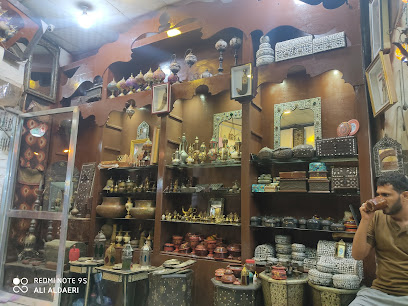
Boutique Nasib
Explore Boutique Nasib for authentic souvenirs and a taste of local culture in Balbala, Djibouti.

Boutique Artisanaux
Explore the charm of Djibouti through artisanal home goods at Boutique Artisanaux, where local craftsmanship meets unique design.
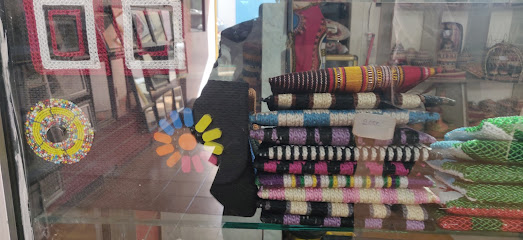
Arta électronique
Explore Arta Électronique in Djibouti for a unique blend of modern electronics and local culture that reflects the heart of the region.
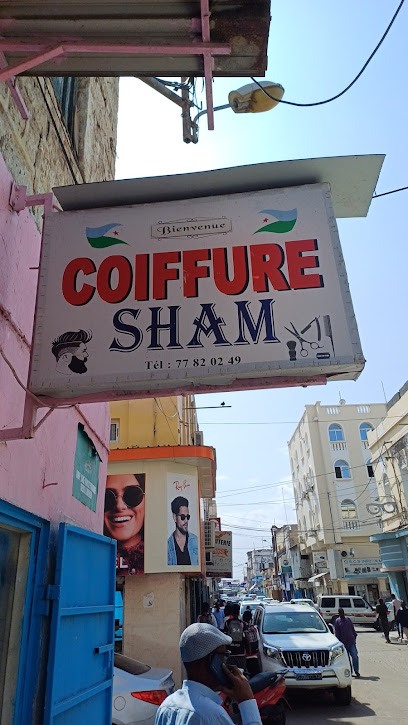
Sacdiya sharaf
Discover unique handcrafted treasures at Sacdiya Sharaf, Djibouti's charming gift shop, perfect for souvenirs and local crafts.

The one shopping
Explore The One Shopping in Djibouti, a charming gift shop filled with local souvenirs and unique treasures that embody the spirit of the region.

Boutique Moderne
Discover unique fashion at Boutique Moderne in Djibouti, where local style meets modern trends in a vibrant shopping experience.
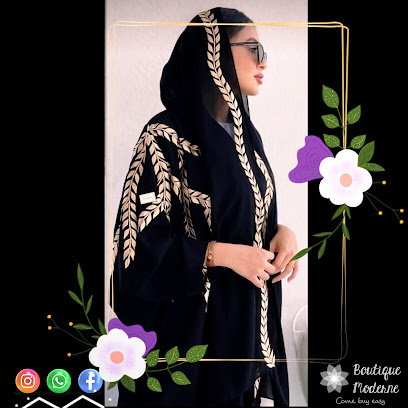
Beauty Bar djibouti
Explore the Beauty Bar in Djibouti for a vibrant selection of beauty products, local trends, and expert advice for all your beauty needs.

Boutique AF
Experience local flavors at Boutique AF in We'a, your go-to grocery store for fresh produce and unique regional delicacies.

Boulevard de gaule
Discover unique gifts and local culture at Boulevard de Gaulle, Djibouti's vibrant shopping destination.

Hasdl shopping
Discover the heart of Djibouti at Hasdl shopping, where local culture meets modern retail in a vibrant marketplace experience.
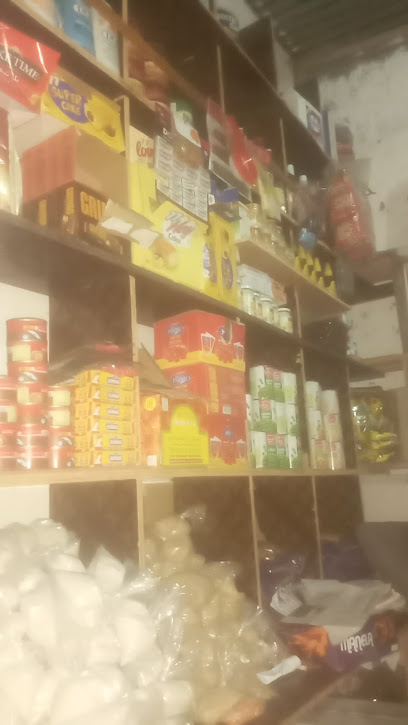
Essential bars & hidden hideouts
11 Degrees North
Experience the vibrant nightlife of Djibouti at 11 Degrees North, a lively pub offering delicious drinks and a friendly atmosphere.
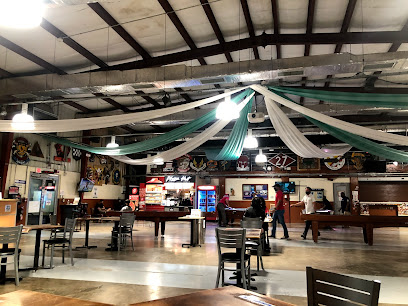
QG Pub & Resto
Experience the authentic taste of Djibouti at QG Pub & Resto, where flavorful barbecue meets a welcoming atmosphere.
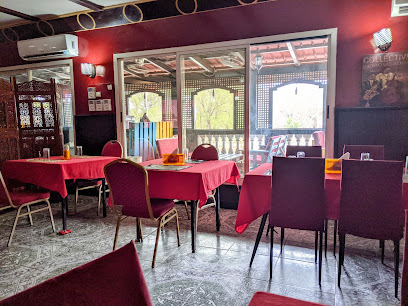
Timeout Restaurant and Sport Bar
Experience the vibrant atmosphere of Timeout Restaurant and Sport Bar in Djibouti, where delicious cuisine meets exciting sports entertainment.
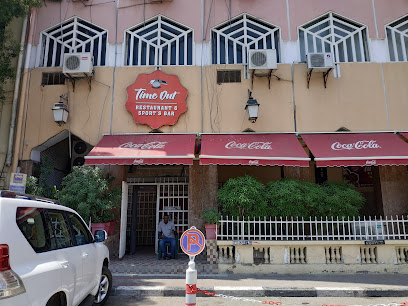
Cantina
Discover the vibrant nightlife of Djibouti at Cantina, a lively bar offering drinks, music, and the chance to mingle with locals.

Safari Club Kempinski
Experience the elegance and vibrant nightlife at Safari Club Kempinski, a luxurious bar in the heart of Djibouti's Palace Kempinski.

Crystal Lounge Sheraton Djibouti
Experience the epitome of luxury dining at Crystal Lounge Sheraton Djibouti, where local flavors meet international elegance in a stunning setting.
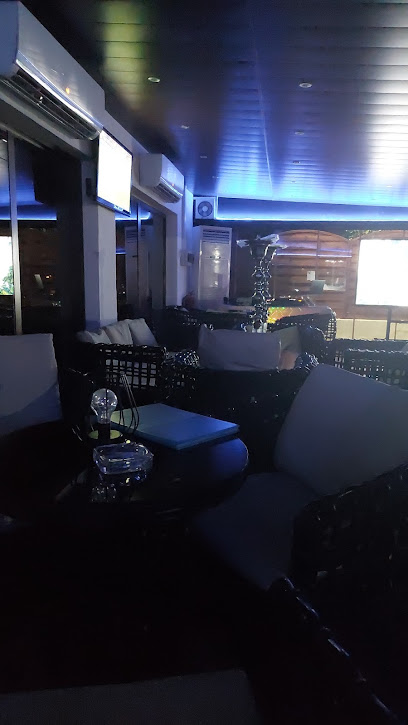
Pub Palmier Zink
Discover the vibrant nightlife at Pub Palmier Zink, a popular bar in Djibouti, offering local flavors and a lively atmosphere for all visitors.
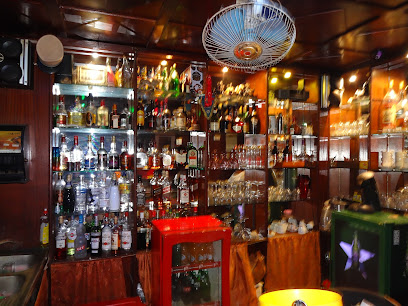
The Goat Locker
Experience the vibrant nightlife of Djibouti at The Goat Locker, a unique bar offering local flavors and a lively atmosphere.

B B S Lounge (Bar By Sing's)
Experience the vibrant nightlife and stunning views at B B S Lounge, a premier bar in Djibouti perfect for relaxation and socializing.

Beauty Bar djibouti
Explore the best beauty supplies in Arta, Djibouti at Beauty Bar – Your gateway to local and international beauty products.

Scotch djibouti
Discover a lively nightlife experience at Scotch Djibouti, where vibrant drinks and an energetic atmosphere await every traveler.
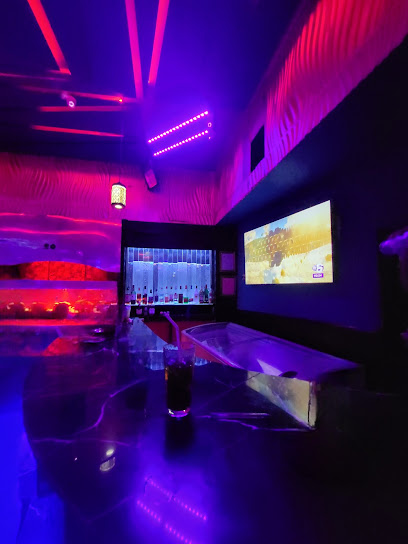
TE'AMO,VBawadi Mall
Discover the vibrant nightlife of Djibouti at TE'AMO in VBawadi Mall, where great drinks and a lively atmosphere await.
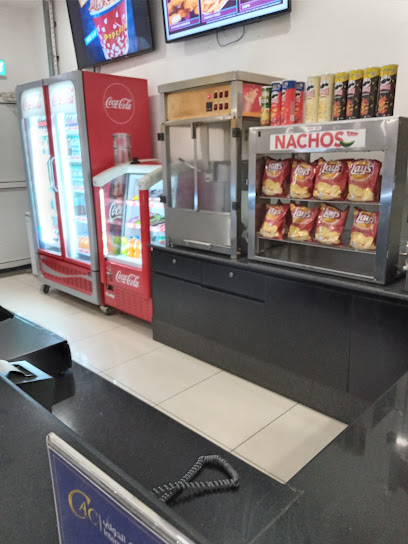
Ayan
Discover Ayan, a tranquil lounge in Djibouti, where relaxation meets vibrant local culture for an unforgettable experience.

La maison Kader
Experience the vibrant nightlife and local culture at La maison Kader, a lively bar in the heart of Day offering delicious drinks and friendly vibes.

Local Phrases
-
- HelloSalaam
[sah-lahm] - GoodbyeMa'a salaama
[mah-ah sah-lah-mah] - YesEey
[ee-y] - NoMaya
[my-yah] - Please/You're welcomeMarhaba
[mar-hah-bah] - Thank youShukran
[shook-rahn] - Excuse me/SorrySamahani
[sah-mah-hah-nee] - How are you?Kifik?
[kee-feek] - Fine. And you?Nzuri. Na wewe?
[n-zoo-ree. nah weh-weh] - Do you speak English?Unazungumza Kiingereza?
[oo-nah-zoon-goom-zah keen-geh-reh-zah] - I don't understandSielewi
[see-eh-leh-wee]
- HelloSalaam
-
- I'd like to see the menu, pleaseNingependa kuona menyu, tafadhali
[nee-neh-pen-dah koo-oh-nah men-yoo, tah-fah-dah-lee] - I don't eat meatSili nyama
[see-lee nyah-mah] - Cheers!Afya!
[ah-fyah] - I would like to pay, pleaseNingependa kulipa, tafadhali
[nee-neh-pen-dah koo-lee-pah, tah-fah-dah-lee]
- I'd like to see the menu, pleaseNingependa kuona menyu, tafadhali
-
- Help!Msaada!
[msah-ah-dah] - Go away!Ondoka!
[ohn-doh-kah] - Call the Police!Piga polisi!
[pee-gah poh-lee-see] - Call a doctor!Piga daktari!
[pee-gah dahk-tah-ree] - I'm lostNimepotea
[nee-meh-poh-teh-ah] - I'm illMimi ni mgonjwa
[mee-mee nee m-gohn-jwah]
- Help!Msaada!
-
- I'd like to buy...Ningependa kununua...
[nee-neh-pen-dah koo-noo-noo-ah] - I'm just lookingNatazama tu
[nah-tah-zah-mah too] - How much is it?Bei gani?
[bayee gah-nee] - That's too expensiveHiyo ni ghali sana
[hee-yoh nee gah-lee sah-nah] - Can you lower the price?Unaweza kupunguza bei?
[oo-nah-weh-zah koo-poong-goo-zah bayee]
- I'd like to buy...Ningependa kununua...
-
- What time is it?Saa ngapi?
[sah-ah ngah-pee] - It's one o'clockSaa moja
[sah-ah moh-jah] - Half past (10)Nusu ya (kumi)
[noo-soo yah (koo-mee)] - MorningAsubuhi
[ah-soo-boo-hee] - AfternoonMchana
[m-chah-nah] - EveningJioni
[joh-nee] - YesterdayJana
[jah-nah] - TodayLeo
[leh-oh] - TomorrowKesho
[keh-shoh] - 1Moja
[moh-jah] - 2Mbili
[m-bee-lee] - 3Tatu
[tah-too] - 4Nne
[nn-eh] - 5Tano
[tah-noh] - 6Sita
[see-tah] - 7Saba
[sah-bah] - 8Nane
[nah-neh] - 9Tisa
[tee-sah] - 10Kumi
[koo-mee]
- What time is it?Saa ngapi?
-
- Where's a/the...?Iko wapi...?
[ee-koh wah-pee] - What's the address?Ni anwani gani?
[nee ahn-wah-nee gah-nee] - Can you show me (on the map)?Unaweza kunionyesha (kwenye ramani)?
[oo-nah-weh-zah koo-nee-oh-nyeh-shah (kweh-neh rah-mah-nee)] - When's the next (bus)?Ni lini basi inayofuata?
[nee lee-nee bah-see ee-nah-yoh-foo-ah-tah] - A ticket (to ....)Tiketi (kwenda ...)
[tee-keh-tee (kwehn-dah)]
- Where's a/the...?Iko wapi...?
History of Arta
-
The town of Arta, located in Djibouti, has a rich history that dates back to ancient times. Positioned strategically along the Gulf of Tadjoura, it served as a hub for early settlers and traders. The region's fertile land and access to the coast made it an ideal location for communities to thrive.
-
During the late 19th century, Arta became a focal point during the period of French colonial expansion in the Horn of Africa. The establishment of French Somaliland brought significant changes to the area, including infrastructure development and the introduction of new administrative practices.
-
Djibouti gained independence from France on June 27, 1977, and Arta played a vital role in the newly formed nation's development. The town saw increased investment in education, healthcare, and local governance, transforming it into a modern urban center.
-
One of the most notable historical events in Arta's recent history is the Arta Peace Conference held in 2000. This conference was a pivotal moment in Somali history, as it brought together various factions to negotiate peace and establish a transitional government for Somalia, highlighting Arta's role in regional diplomacy.
-
Arta is not only significant for its historical events but also for its rich cultural heritage. The town is known for its traditional Afar and Issa communities, who have preserved their unique languages, customs, and crafts. Festivals, music, and dance continue to be integral aspects of life in Arta, offering visitors a glimpse into the vibrant local culture.
-
Arta's geographical location provides a unique blend of natural attractions, including the Arta Beach along the Gulf of Tadjoura and the scenic Arta Mountains. The region is also home to diverse wildlife, making it a popular destination for eco-tourism and nature enthusiasts.
Arta Essentials
-
Arta is located in the central region of Djibouti, approximately 50 kilometers from the capital city, Djibouti City. The nearest international airport is Djibouti-Ambouli International Airport (JIB). From the airport, you can hire a taxi or rent a car to reach Arta, which typically takes around an hour by road. Alternatively, you can use local buses or shared taxis, known as 'minibuses', which are a more budget-friendly option.
-
Getting around Arta is relatively straightforward. The town is small, so many attractions are within walking distance. For longer distances, local taxis are readily available and reasonably priced. Minibuses are the most common form of public transport and are an affordable way to travel. Renting a car is another option if you prefer to explore at your own pace. Ensure to negotiate taxi fares in advance, as meters are not commonly used.
-
The official currency in Djibouti is the Djiboutian Franc (DJF). While credit cards are accepted in some hotels and larger establishments, it is advisable to carry cash, especially when visiting smaller shops and local markets. ATMs are available in Arta, but it is recommended to withdraw sufficient cash in Djibouti City to avoid any inconvenience.
-
Arta is generally considered a safe destination for tourists. However, it is always wise to exercise standard precautions. Avoid walking alone at night in unfamiliar areas and keep your belongings secure, especially in crowded places like markets. While Arta does not have specific high-crime areas targeting tourists, it is always best to stay vigilant and aware of your surroundings.
-
In case of emergency, dial 17 for police assistance and 19 for medical emergencies. The local police station and medical facilities are available in Arta. It is highly recommended to have travel insurance that covers medical emergencies. Pharmacies in the town can provide over-the-counter medications for minor health issues.
-
Fashion: Do dress modestly, especially when visiting religious sites. Avoid wearing revealing clothing. Religion: Do respect local customs and traditions. Always cover your head when entering mosques. Public Transport: Do be respectful and considerate. Don’t eat or drink on public transport. Greetings: Do greet people with a handshake. A slight bow of the head is also a sign of respect. Eating & Drinking: Do try local delicacies and accept food offerings graciously. Don’t refuse hospitality, as it is considered impolite.
-
To experience Arta like a local, visit the local markets where you can buy fresh produce and traditional Djiboutian goods. Engage with locals, as they are often friendly and willing to share stories about the town's history and culture. Don't miss visiting the Arta Beach, which offers stunning views of the Gulf of Tadjoura. For a unique experience, hike up to the Arta Mountains for breathtaking views of the surrounding landscape.
Nearby Cities to Arta
-
Things To Do in Tadjoura
-
Things To Do in Djibouti City
-
Things To Do in Ali Sabieh
-
Things To Do in Loyada
-
Things To Do in Dikhil
-
Things To Do in Obock
-
Things To Do in Dire Dawa
-
Things To Do in Hargeisa
-
Things To Do in Harar
-
Things To Do in Aden
-
Things To Do in Ibb
-
Things To Do in Dhamar
-
Things To Do in Lalibela
-
Things To Do in Mekele
-
Things To Do in Sana'a







